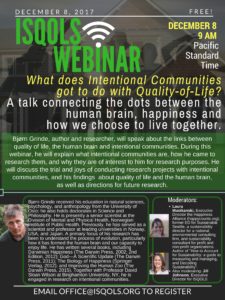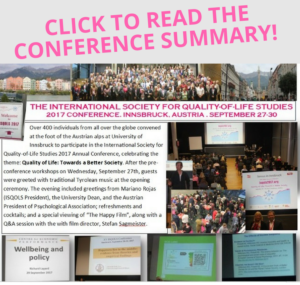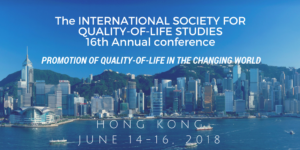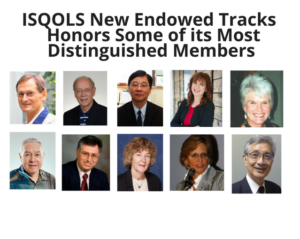- » Homepage
- » Blog
- » ISQOLS International Conference Proposal to Host
Do you have some ISQOLS-related news, event announcement or reading recommendation you want to see published? Even as a non-member, you can post it directly to our site.
» Create news entry
ISQOLS International Conference Proposal to Host
The Conference Committee of the International Society for Quality of Life Studies (ISQOLS) invites interested organizations to submit a proposal for hosting future ISQOLS Conferences. Hosting the conference can provide considerable exposure regarding quality of life in the area. Further, holding the conference can provide an economic stimulus to the area as well as opportunities to gain recognition for the sponsoring organization.
Proposal and Application
ISQOLS Conference Description:
ISQOLS conferences typically attract about 300-400 attendees, and the conference is held over a three-day period (four days including the pre-conference workshops) and includes an opening session and reception, multiple sessions in which attendees present their research, a keynote luncheon, and a closing awards dinner. We strive to keep registration fees affordable, yet we also must realize revenue from the conferences to support ISQOLS as a nonprofit scholarly society.
Conference Host Selection Process:
The conference selection is a two-part process. First, an interested local host committee should submit a proposal via the application below.
Next, the committee will invite complete proposals from groups who make especially strong proposals. It is crucial that ISQOLS conferences be self-supporting, held in a site with easy or low-cost air access, affordable housing options, and meeting space with minimal costs. Because the costs should be kept low, we encourage submissions from host organizations partnering with universities or other institutions where low or no cost meeting space and affordable housing options are available. After completed proposals are received, the committee will negotiate a memorandum of agreement detailing conference specifics with the host organization.
After the Executive Committee selects the proposal, we will finalize details and clearly outline responsibilities for the organizing committee. Please submit proposals by January 30th, 2018. The intent is to rotate through the major regions – Europe, North America, Asia, and South America or Africa – on a regular basis. Our intent is to have a three-year schedule of conferences identified for ISQOLS.
- 2019- Granada, Spain
- 2020- Rotterdam, Netherlands
- 2021- Available, Deadline for submission is January 30, 2018
- 2022- Available, Deadline for submission is January 30, 2019
All interested organizations should examine the “Guidelines for Hosting the ISQOLS Conference” document provided. We invite and encourage your submission!
CLICK HERE TO ACCESS THE APPLICATION!
Questions? Contact:
office@isqols.dreamhosters.com
www.isqols.dreamhosters.com
Call for Unpublished Papers for Psychological Well-Being and Longevity Meta-Analysis
Subject: Call for Unpublished Papers for Psychological Well-Being and Longevity Meta-Analysis
Dear Colleagues,
We are conducting a meta-analysis examining the effects of subjective well-being on longevity/mortality. We are seeking any unpublished reports of such findings and data sets in which these variables were measured in a prospective manner, though not reported in a published work. To be included, studies must:
1) Be a prospective/longitudinal study design
2) Include a measure of psychological well-being (e.g., happiness, positive affect, life satisfaction, optimism) at an early time-point
3) Have a subsequent (not just simultaneous) measure of mortality rates
If you have any work fitting with this request, PLEASE contact Samantha Heintzelman via email, sjh9f@virginia.edu, by January 17, 2018., and send us a reference for the publication.
Thank you, Ed Diener and Samantha Heintzelman
FREE Webinar: December 8th! What does Intentional Communities got to do with Quality-of-Life? A talk connecting the dots between the human brain, happiness and how we choose to live together.
What does Intentional Communities got to do with Quality-of-Life?
A talk connecting the dots between the human brain, happiness and how we choose to live together.
DECEMBER 8
9 AM
Pacific
Standard
Time
Bjørn Grinde, author and researcher, will speak about the links between quality of life, the human brain and intentional communities. During this webinar, he will explain what intentional communities are, how he came to research them, and why they are of interest to him for research purposes. He will discuss the trial and joys of conducting research projects with intentional communities, and his findings about quality of life and the human brain, as well as directions for future research.
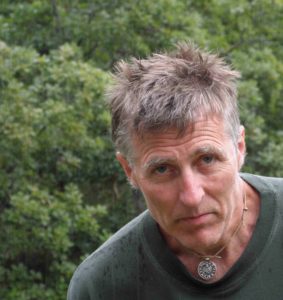 Bjørn Grinde received his education in natural sciences, psychology, and anthropology from the University of Oslo; he also holds doctorates in Science and Philosophy. He is presently a senior scientist at the Division of Mental and Physical Health, Norwegian Institute of Public Health. Previously, he has served as a scientist and professor at leading universities in Norway, USA, and Japan. A primary focus of his research has been to understand the process of evolution, particularly how it has formed the human brain and our capacity to enjoy life. He has written several books, including Darwinian Happiness (The Darwin Press, 2002; 2nd Edition, 2012); God—A Scientific Update (The Darwin Press, 2011); The Biology of Happiness (Springer Verlag, 2012); and Improving the Human Zoo (The Darwin Press, 2015). Together with Professor David Sloan Wilson at Binghamton University, NY, he is engaged in research on intentional communities.
Bjørn Grinde received his education in natural sciences, psychology, and anthropology from the University of Oslo; he also holds doctorates in Science and Philosophy. He is presently a senior scientist at the Division of Mental and Physical Health, Norwegian Institute of Public Health. Previously, he has served as a scientist and professor at leading universities in Norway, USA, and Japan. A primary focus of his research has been to understand the process of evolution, particularly how it has formed the human brain and our capacity to enjoy life. He has written several books, including Darwinian Happiness (The Darwin Press, 2002; 2nd Edition, 2012); God—A Scientific Update (The Darwin Press, 2011); The Biology of Happiness (Springer Verlag, 2012); and Improving the Human Zoo (The Darwin Press, 2015). Together with Professor David Sloan Wilson at Binghamton University, NY, he is engaged in research on intentional communities.
EMAIL OFFICE@ISQOLS.ORG TO REGISTER
Register now! *FREE* ISQOLS Webinar, November 3rd, “How an Activist Researcher became a Cartoon Character: HyperCapitalism, Values, & Quality of Life
Join ISQOLS for our third FREE webinar, presented by Tim Kasser, Professor & Chair of Psychology at Knox College in Galesburg, Illinois.
Laura Musikanski, of the Happiness Alliance, and Jill Johnson, Executive Director of ISQOLS will be moderating and hosting.
How an Activist Researcher became a Cartoon Character:
HyperCapitalism, Values, & Quality of Life
NOVEMBER 3, 2017
10 am, Pacific Standard Time
*FREE*
(registration required!
Email office@isqols.dreamhosters.com to register)
Since the mid-1990s, Tim has been writing scientific papers, chapters, and books on values, well-being, materialism, and consumer capitalism. In the mid-2000s, he began actively trying to help non-profit organizations put this research literature to use in their campaigns and communications. These experiences led him to become increasingly interested in ways of reaching diverse groups while still maintaining his role (and integrity) as a scientist. Because cartooning is a medium quite successful in reaching many people, he decided to collaborate with a well-known cartoonist, Larry Gonick, and, together, write a book that uses the scientific literature on values and well-being to explain and critique HyperCapitalism, as well as to present alternatives to this system. This webinar will describe the process we went through in creating the book and give examples of how to present scientific results in a visually compelling, and sometimes funny, way.
Guest Speaker:
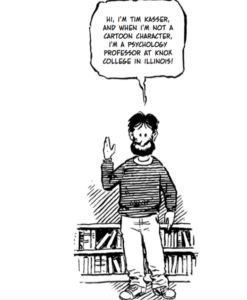 Tim Kasser is Professor & Chair of Psychology at Knox College in Galesburg, Illinois. He has authored over 100 scientific articles and book chapters on materialism, values, and quality of life, among other topics. After the publication of his first book, The High Price of Materialism, he was named a Distinguished Research Fellow by ISQOLS in 2003. In early 2018, he will release his fifth book, co-authored with the cartoonist Larry Gonick, and titled Hypercapitalism: The Modern Economy, Its Values, and How to Change Them. In addition to his academic pursuits, Kasser consults frequently with activist groups who work against the commercialization of children and who encourage a more inwardly rich lifestyle than what is offered by consumerism.
Tim Kasser is Professor & Chair of Psychology at Knox College in Galesburg, Illinois. He has authored over 100 scientific articles and book chapters on materialism, values, and quality of life, among other topics. After the publication of his first book, The High Price of Materialism, he was named a Distinguished Research Fellow by ISQOLS in 2003. In early 2018, he will release his fifth book, co-authored with the cartoonist Larry Gonick, and titled Hypercapitalism: The Modern Economy, Its Values, and How to Change Them. In addition to his academic pursuits, Kasser consults frequently with activist groups who work against the commercialization of children and who encourage a more inwardly rich lifestyle than what is offered by consumerism.
ISQOLS Innsbruck Conference Summary!
The ISQOLS 2017 Conference in Innsbruck, Austria was a great success!
Click to read the conference summary!
Mark your calendars for: The ISQOLS 16TH ANNUAL CONFERENCE “PROMOTION OF QUALITY-OF-LIFE IN THE CHANGING WORLD” HONG KONG, JUNE 14-16, 2018
The ISQOLS 16TH ANNUAL CONFERENCE
“PROMOTION OF QUALITY-OF-LIFE IN THE CHANGING WORLD”
HONG KONG, JUNE 14-16, 2018
http://www.isqols2018.hk/
The 16th ISQOLS Annual Conference will be co-organized by ISQOLS and the Department of Applied Social Sciences, The Hong Kong Polytechnic University from June 14th to June 16th 2018 (Thursday to Saturday) in Hong Kong, China.The theme of the conference is “Promotion of Quality of Life in the Changing World”. With emerging global challenges such as mental health issues, aging population, global warming, pollution and inequalities, this conference constitutes a platform for researchers and practitioners in different fields to make presentations on academic and practical research findings on quality of life, well-being, and happiness, with particular reference to how such work can promote quality of life in the changing world.
Call for Abstracts, Posters and Symposia Organization:
Abstracts must be submitted using the online submission system called “EasyChair” found on the conference website: http://www.isqols2018.hk/. Please read the “EasyChair Instruction for Authors” before submitting your abstract.
Submission Instructions:
Before submitting an abstract, authors are requested to carefully check which one of the 11 tracks is the most appropriate track for the paper. Abstracts must be submitted to the most appropriate track (i.e., ONE track only) of the conference by the presenting author. For an accepted abstract, the presenting author must register for the conference and present the paper at the conference. Our policy is that the acceptance of submissions for the oral presentation session is on a first-come, first-serve basis. We will arrange several rounds of review. Each submission will be assessed by two reviewers (Track Chairs) appointed by the Scientific Committee. Based on the recommendations made by the Track Chairs, the Scientific Committee will make the final decision on the acceptance of the abstracts and their final presentation format and time.
DEADLINE FOR ABSTRACT SUBMISSION: NOVEMBER 30TH, 2017
Notification of acceptance: Review process will be initiated upon successful submission. As a general principle, authors who submit their abstracts early would receive an early notification via email normally within 6 weeks after they submit their abstracts. We are looking forward to receiving your contributions. Please click “Abstract Guideline” for detailed information for the submission of your abstract.
We are looking forward to receiving your contributions.
Mariano Rojas Daniel Shek
ISQOLS, president 2017-18 Chair local organizing committee
ISQOLS Establishes Endowed Tracks to Honor Some of its Most Distinguished Members
by Richard Estes, Joseph Sirgy, Kai Ludwigs (ISQOLS Development Committee)
Our new president, in consultation with the Development Committee (Richard Estes, Kai Ludwigs, and Joseph Sirgy), and by vote of the Executive Committee has developed a new way of honoring some of our most distinguished members—to establish Endowed Named Tracks that will become permanent features of all future ISQOL’s international conferences. These Endowed Tracks are equivalent in importance to our Endowed Lecture Series which currently honor Edward Diener, Richard Estes, Alex Michalos—all of whom are past presidents of the society and have made their contributions to quality of life research in different disciplines and sectors of quality of life and well-being. The tracks are funded by the honorees, their families, and professional colleagues. Additional support also will be sought from the ISQOLS membership by making donations on the ISQOLS/Foundation website using the “donate” button that appear next to each track. Only the income derived from investment of these endowments will be used to support the track’s activities.
Endowed Track Honorees for 2017
The following persons, and their substantive area of research, are being honored this year:
- Anderson, Ron: “The Ronald E. Anderson Endowed Track on the Alleviation of Human Suffering”
- Eckermann, Liz: “The Elizabeth Eckermann Endowed Track on Gender and Quality of Life”
- Land, Ken: “The Kenneth C. Land Endowed Track on the Advancement of Quality of Life and Well-Being of Children”
- Mangahas, Mahar: “Mahar Mangahas Endowed Track for the Advancement of Quality of Life and Well-Being in Southeast Asia”
- Phillips, Rhonda: “The Rhonda G. Phillips Endowed Track for the Promotion of Community Development and Community Well-Being”
- Shek, Daniel: “The Daniel Shek-Wofoo Foundation Endowed Track for the Advancement of Adolescent Quality of Life Research”
- Sirgy, Joe: “The M. Joseph Sirgy Endowed Track on Well-Being and Policy”
The preceding tracks will come into force with next year’s meeting in Hong Kong. The Development Committee plans to honor additional pioneers in the field with an Endowed Name Track next year.
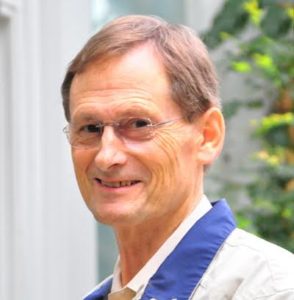 Ronald E. Anderson Endowed Track on the Alleviation of Human Suffering
Ronald E. Anderson Endowed Track on the Alleviation of Human Suffering
Named for an ISQOLS leader and pioneer in the advancement of the theme of the alleviation of suffering, contributions made to the “Ronald E. Anderson Endowed Track” will permanently endow a track on the “Alleviation of Human Suffering” to be held as part of each ISQOLS international conference program. This track will include as least two sessions consisting of three or more participants whose research activities overlap with the purpose of this endowment.
Sessions organized by each Conference Program Committee will represent topical areas of the theme “Alleviation of Human Suffering.” Such topical areas could be, but are not limited to, any of the following: activism, altruism, caregivers, civil society, development, disaster relief, education, housing, meaning, migration, peace, reducing inequality, social responsibility, solidarity, sustainability, volunteering, etc. Only the income earned from this Fund will be used to support the endowed track.
Ron Anderson is Professor of Sociology, Emeritus, at the University of Minnesota. He received his doctorate at the Stanford University in 1970, and served as faculty member of the University of Minnesota until retiring in 2005.
In the early 1980s, he developed and published a computer learning game called “The Social Indicators Game,” which was published by Random House. For five years after that, he served as Director of the University of Minnesota Centre for Survey Research. That role prepared him for directing a series of large international surveys of how teachers adapt to new information technology in their teaching. To conduct these studies under auspices of the International Association for the Evaluation of Educational Achievement (IEA), he obtained several multi-million-dollar research grants.
In 1987, Ron became Co-Editor of Social Science Computer Review, a Sage Academic Journal, and still serves in that capacity. He has received many awards including the William F. Osburn Lifetime Achievement Award on Communication and Information Technology from the American Sociological Association. He has been a member of the ISQOLS Board of Directors since 2014.
Professor Anderson has 125 published articles and 12 books, the last three of which address the topics of suffering and alleviation of suffering.
In these most recent books, he introduced a paradigm for conceptualizing human suffering, and discusses several ways to frame it. In these books and recent articles, he presented data, both quantitative and qualitative, about the nature and severity of suffering. His main objective is to build a community of researchers that will investigate human suffering and its alleviation on a global scale. The titles of his last three books are:
- Anderson, R. (2014). Human Suffering and Quality of Life -Conceptualizing Stories and Statistics. NYC: Springer.
- Anderson, R. (Ed.) (2015). World Suffering and Quality of Life. NYC: Springer.
- Anderson, R. (Ed.) (2017) Alleviating World Suffering –The Challenge of Negative Quality of Life. NYC: Springer.
 Elizabeth Eckermann Endowed Track on Gender and Quality of Life
Elizabeth Eckermann Endowed Track on Gender and Quality of Life
Named for an ISQOLS leader and pioneer in the advancement of gender sensitive quality of life research, contributions made to the “Elizabeth Eckermann Endowed Track” will permanently endow a track on the “Gender and Quality of Life” to be held as part of each ISQOLS international conference program. This track will include as least two sessions consisting of three or more participants whose research activities overlap with the purpose of this endowment. Only the income earned from this Fund will be used to support the endowed track.
Elizabeth (Liz) Eckermann (M.A., PhD) is a professor at Deakin University in Australia with a personal chair in medical sociology. She also works as a consultant for the World Health Organization in Geneva and Manila and as editor of the journal, Health Promotion International. She has been Associate Dean: Research and Head of the School of History, Heritage and Society in the Arts and Education Faculty at Deakin University but now concentrates on research and advocacy activities in the Asia Pacific region including as a delegate to the United Nations.
Her recent research and publications cover a wide field from gendered health, maternal health, health promotion, public health, and quality of life to domestic violence, alcohol related harm and eating disorders. The underlying theme of this wide-ranging research is a critical engagement with comparative and gendered understandings of wellbeing as exemplified in her editorial pieces in Health Promotion International on “From health impact assessment to quality of life assessment” 2013 Vol 28, No 4, “Health promotion principles as a catalyst for translating the SDGs into more transformative action” 2016 vol 31. No 2, and “Global health promotion in the era of galloping populism” 2017 Vol.32. Gendered dimensions of quality of life is the key theme of Liz’s recent Springer publications on “Gender Lifespan and Quality of Life: An International Perspective” in 2014; a chapter on the “History of Well-being and the Social Progress of Women Throughout the World” in The Pursuit of Well-being: The Untold Global History edited by Richard J. Estes and M. Joseph Sirgy, in 2017; a chapter on “Living Alone and Living Together: Their Significance for Well-being” in W. Glatzer (ed.) Global Handbook of Quality of Life in 2015; and “The Quality of Life of Adults” in Handbook of Social Indicators and Quality of Life Research in 2012, edited by Kenneth C. Land, Alex C. Michalos, and M. Joseph Sirgy.
Much of Liz’s research over the past decade was conducted in Lao PDR. A project funded by the Italian government to build and evaluate 17 maternity waiting homes in the southern provinces of Lao PDR and an AusAID grant to “develop new and effective ways to evaluate intervention in maternal health services in illiterate and innumerate communities in southern Lao PDR”, have contributed to significant policy and health provision changes in the poorer provinces of Attepu, Sekong and Salavan in southern Lao PDR. Liz’s research, using the Diamond Dialogue Tool to measure wellbeing amongst ethnic minority communities in these provinces, won her the Zonta International Outstanding Achievement Award for commitment to the advancement of women’s health in Lao PDR. Publication of these findings include “Resilience as a double-edged health promotion goal: case examples from Lao PDR”, published in Health Promotion International in 2016; “Quality of Life for Pregnant and Recent Parity Women in Lao PDR” in the edited book on Gender, Lifespan and Quality of Life: An International Perspective; “Home delivery in Southern Lao PDR: challenges to achieving MDG 4 & 5 targets” (with Sanaphay, Daenseekaew, Smith and Scopaz) in Philippine Journal of Nursing, vol. 84, no. 1, pp. 24-31; “Diamond Dialogue Method for the Evaluation of Personal Wellbeing after a Maternal Health Intervention in Lao PDR” (with Scopaz and Clarke) in the International Journal of Happiness and Development Vol 1, No.1 2012, pp 49-62; and “Maternal Health in Lao PDR: Repositioning the Goal Posts” (with Scopaz and Clarke) in the Journal of the Asia Pacific Economy Vol. 16, No. 4, Nov. 2011, pp 597-611.
Liz’s current research project, with researchers from Universiti Sabah Malaysia, extends that research to examine the impact on quality of life of an alcohol-related harm intervention program in Kadazan /Dusun kampongs in Sabah, Malaysia.
Liz has a long involvement with ISQOLS spanning two decades. She has been on the Board of Directors of the International Society for Quality-of-Life Studies where she was Vice-President: Development and was made a Distinguished Research Fellow of the Society. Her key contribution in the field has been to promote a gendered approach to both quality of life and well-being as reflected in the article “Elizabeth (Liz) Eckermann: A Pioneer in Gendered Understandings of Quality of Life”, Applied Research in Quality of Life 2015 DOI: 10.1007/s11482-015-9420-0. She presented the Richard J. Estes lecture on comparative understandings of quality of life and well-being at the 2016 ISQOLS Conference in Seoul. She is President Elect of ISQOLS and will take up the presidency in 2019. Email: liz.eckermann@deakin.edu.au
 Kenneth C. Land Endowed Track on the Advancement of Quality of Life and Well-Being of Children
Kenneth C. Land Endowed Track on the Advancement of Quality of Life and Well-Being of Children
Named for an ISQOLS leader and pioneer in the advancement of the theme of the child and youth well-being, contributions made to the “Kenneth C. Land Endowed Track” will permanently endow a track on the “Advancement of Quality of Life and Well-Being of Children” to be held as part of each ISQOLS international conference program. This track will include as least two sessions consisting of three or more participants whose research activities overlap with the purpose of this endowment.
Sessions organized by each Conference Program Committee will represent topical areas of the theme “Quality of Life and Well-Being of Children and Youth.” Such topical areas could be, but are not limited to, any of the following: measurement of levels and trends in child and youth well-being and its various components, comparisons among sub-populations, societal features, including public policies, which affect child and youth well-being and improvements therein. Only the income earned from this Fund will be used to support the endowed track.
Ken Land is Research Professor and the John Franklin Crowell Professor of Sociology and Demography Emeritus at Duke University. He received his doctorate in sociology and mathematics from The University of Texas at Austin in 1969, did post-doctoral study in mathematical statistics and then taught at Columbia University in New York City (1969-1973), and the served as faculty member of the University of Illinois at Urbana-Champaign (1973-1981), the University of Texas at Austin (1981-1986), and Duke University (1986-present).
In the early 1970s, Ken was a member of the Indicators of Social Change Project at the Russell Sage Foundation. He then served as a member of the Social Science Research Council Advisory and Planning Committee on Social Indicators, 1976-1982, which coordinated and/or sponsored much research and social reporting on social indicators and quality-of-life studies.
Since 1999, Ken has been Director of the Developing a Child Well-Being Index Project at Duke University. This project has produced a composite Child and Youth Well-Being Index (CWI) that has been applied to measure comparative levels and trends over time in child well-being for the U.S., for its 50 states, and for sub-regions and sub-populations therein. The project produces an annual update and report on the CWI and has led to many peer-reviewed journal articles and other publications, many of which are summarized in Land, K. C. (ed.) 2012 “The Well-Being of America’s Children: Developing and Improving the Child and Youth Well-Being Index” (New York: Springer).
Ken has 171 published articles, 10 books, and 78 chapters in edited books. He has received many awards including being elected a Fellow of ISQOLS, the American Statistical Association, the Sociological Research Association, the American Association for the Advancement of Science, and the American Society of Criminology. In 2010, he received the ISQOLS Distinguished QOL (Quality of Life) Researcher Award.
 Mahar Mangahas Endowed Track for the Advancement of Quality of Life and Well-Being in Southeast Asia
Mahar Mangahas Endowed Track for the Advancement of Quality of Life and Well-Being in Southeast Asia
Named for an ISQOLS leader and pioneer in the advancement of the theme of advancing quality of life and well-being in Southeast Asia. Contributions made to the “Mahar Mangahas Endowed Track” will permanently endow a track on “Advancing Quality of Life and Well-Being in Southeast Asia” to be held as part of each ISQOLS international conference program beginning with our conference in Hong Kong. This track will include as least two sessions consisting of three or more participants whose research activities overlap with the purpose of this endowment.
Sessions organized by each Conference Program Committee will represent topical areas of the theme “Quality of Life and Well-Being in Southeast Asia.” Such topical areas could be, but are not limited to, any of the following: subjective well-being and ill-being indicators, opinion polls and election surveys, indicators of governance, cross-country survey comparisons, and institutional factors affecting quality-of-life measurement. Only the income earned from this Fund will be used to support the endowed track.
Mahar Mangahas is an economist (PhD, University of Chicago) whose research spans rice economics, land reform, poverty, hunger, income inequality, quality of life, governance, and public opinion. He has been an economics professor of the University of the Philippines, editor of the Philippine Economic Journal, President of the Philippine Economic Society, and President of the Marketing and Opinion Research Society of the Philippines. He did pioneering research on Philippine social indicators at the Development Academy of the Philippines. He was a UNICEF social indicators consultant in Malaysia and Indonesia.
In 1985, he co-founded and has since headed Social Weather Stations (www.sws.org.ph), an independent non-profit institute that conducts quarterly national Social Weather Surveys on quality of life, governance and public opinion, publishes its findings, and archives the data for public use. Its mission is to generate scientific, relevant and timely statistics for general public discourse, in the context of a democracy. As of March 2017, the SWS archive holds 571 datasets (of which 278 are national), based on 893,000 face-to-face interviews and 105,000 questionnaire items. Many items are designed for cross-country analysis, since SWS is the Philippine member of the International Social Survey Program, the World Values Survey, Asian Barometer, and Comparative Studies of Electoral Systems.
The SWS quarterly surveys on self-rated poverty — which received the 1993 Elizabeth Nelson Award of the World Association for Public Opinion Research (WAPOR) — form the most rapid statistical system of tracking poverty in the world. Its series of 100-plus national observations over three decades reveals that poverty is highly volatile in the short-run, responsive to price inflation, and insensitive to aggregate economic growth.
Despite being an economist, Mangahas maintains that monetary indicators of economic well-being (or else ill-being, such as poverty) are impractical, since their long questionnaires on the earnings and expenditures of family members occupy so much survey interview time. Subjective, or opinion-poll type, indicators are a very convenient way to periodically measure both economic and non-economic dimensions of well-being, and to account for the influence of the contemporary social and political environment. The opinion-poll content of the Social Weather Surveys has made them very popular for analysis of governance, including prediction of elections.
In 2001, Mangahas received WAPOR’s Helen Dinerman Award, after SWS successfully petitioned the Philippine Supreme Court to rule that legislation to suppress publication of election surveys is unconstitutional. His other awards include the 2011 University of Chicago Alumni Award for Public Service, the 2014 Distinguished Research Fellow Award of ISQOLS, and the 2015 Distinguished Alumni Award of the University of the Philippines School of Economics. Mangahas writes a weekly column, “Social Climate,” in the Philippine Daily Inquirer.
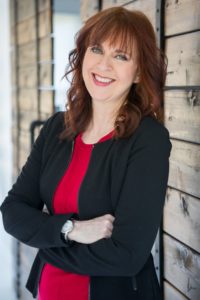 Rhonda G. Phillips Endowed Track for the Promotion of Community Development and Community Well-Being
Rhonda G. Phillips Endowed Track for the Promotion of Community Development and Community Well-Being
Named for an ISQOLS leader and pioneer in the advancement of the theme of community development and community well-being, contributions made to the “Rhonda G. Phillips Endowed Track” will permanently endow a track on “Promotion of Community Development and Community Well-Being” to be held as part of each ISQOLS international conference program. This track will include as least two sessions consisting of three or more participants whose research activities overlap with the purpose of this endowment.
Sessions organized by each Conference Program Committee will represent topical areas of the theme “Community Development and Well-being.” These topical areas could be, but are not limited to, any of the following: community planning and development, city and regional planning, community well-being, happiness in communities, collective quality-of-life dimensions, and the interface between development and well-being. Only the income earned from this Fund will be used to support the endowed track.
Rhonda’s research and outreach efforts focus on quality of life and well-being in community and economic development. A specialist in community development and planning, her career achievements were recognized with induction into the College of Fellows of the American Institute of Certified Planners (FAICP).
At Purdue University, she serves as the inaugural Dean of the Honors College, and a Professor in the Agricultural Economics Department. Honors include serving three times as a Fulbright Scholar – as the 2006 UK Ulster Policy Fellow Fulbright Scholar in Northern Ireland, a 2012 Fulbright Senior Specialist to Panama, and most recently a 2015-2016 specialist again to Panama – all three times working closely with local and communities on development projects.
Rhonda is author or editor of 24 books, including The Handbook of Community Well-Being (2017, Springer); The Handbook of Community Development, Perspectives from Across the Globe (2018, Routledge); Sustainable Communities, Creating a Durable Local Economy; Community Development Indicators Measuring Systems; and the text, Introduction to Community Development. She is editor of the series Community Quality of Life and Well-Being published by Springer in partnership with the International Society for Quality-of-Life Studies, http://www.springer.com/series/13761, and editor of Community Development Research and Practice, a book series by the Community Development Society and Routledge, https://www.routledge.com/Community-Development-Research-and-Practice-Series/book-series/CDRP. Her work in community indicators and well-being has spanned several decades, she serves on the Board of Directors for the Community Indicator Consortium, and as a researcher with the Community Well-Being Institute, housed in South Korea, http://www.communitywellbeing.org/the-team/.
Her work with indigenous and underrepresented communities has been a passion throughout her career, formerly serving as Senior Sustainability Scientist with Arizona State University’s Global Institute of Sustainability, as well as director and professor in the School of Community Resources and Development; and founding Director of the University of Florida’s Center for Building Better Communities. Her work in localism and locally-focused development has resulted in appointment as a founding board of directors member of the Center for Local Economic Advancement and Research (CLEAR), and an invitation to establish a new journal in this area, Localism.
She holds degrees from the Georgia Institute of Technology (city and regional planning and economics) and the University of Southern Mississippi (geography and economic development).
Activities with ISQOLS:
- President, beginning 2013 through December 31, 2016
- Vice President, Programs, 2010-2012
- Service on editorial boards for the journals SIR, Applied Research in Quality-of-Life Studies, and the book series, Community Quality-of-Life Indicators: Best Cases series (now Community Quality-of-Life and Well-Being), and International Handbooks of Quality of Life
- Transitioned ISQOLS operations to professional staff for nonprofit management, for stabilizing processes.
- Helped secure the first online registration system for ISQOLS
- Helped secure the first online abstract submission system
- Implemented processes for conference hosting proposals and have helped transition to annual conferences, with dates confirmed multiple years in advance
- Created and appointed positions for Development (fundraising)
- Renewed board and transitioned inactive members; helped establish board emeritus category as recognition
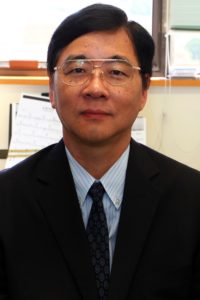 Daniel Shek-Wofoo Foundation Track for the Advancement of Adolescent Quality of Life Research
Daniel Shek-Wofoo Foundation Track for the Advancement of Adolescent Quality of Life Research
Named for an ISQOLS leader and pioneer in the advancement of adolescent quality of life research, contributions made to the “Daniel Shek-Wofoo Foundation Track” will permanently endow a track on the “Advancement of Adolescent Quality of Life Research” to be held as part of each ISQOLS international conference program. This track will include as least two sessions consisting of three or more participants whose research activities overlap with the purpose of this endowment.
Sessions organized by each Conference Program Committee will represent topical areas of the theme “Advancement of Adolescent Quality of Life Research.” Such topical areas could be, but are not limited to, any of the following: adolescent well-being, positive youth development, positive youth development or adolescent prevention programs, family and adolescent well-being, culture and adolescent well-being, adolescent spirituality, assessment of adolescent well-being, youth leadership, service leadership, service-learning, etc. Only the income earned from this Fund will be used to support the endowed track.
Daniel Shek (PhD, FHKPS, BBS, SBS, JP) is Associate Vice President (Undergraduate Programme) and Chair Professor of Applied Social Sciences at The Hong Kong Polytechnic University. He is also Advisory Professor of East China Normal University, Honorary Professor of Kiang Wu Nursing College of Macau, Adjunct Professor of University of Kentucky College of Medicine and Fellow of the Hong Kong Psychological Society. During his stay at The Chinese University of Hong Kong, he was awarded two teaching awards. He was also awarded the Bronze Award (Ethical Leadership) and the Bronze Award (Social Enterprise) in the QS Reimagine Education Awards 2016.
Daniel Shek has to date published 144 books, 394 book chapters and more than 650 articles in international refereed journals. He is the Chief Editor of Journal of Youth Studies and Applied Research in Quality of Life. He is a Series Editor of Quality of Life in Asia published by Springer and an Associate Editor of the Encyclopedia of Family Studies published by Wiley-Blackwell. He is an Editorial Advisor of The British Journal of Social Work and an Editorial Board member of many journals, including Social Indicators Research and Journal of Adolescent Health.
Daniel Shek is a psychologist with research interests in positive youth development, family processes, scale development, quality of life, program evaluation, addiction and spirituality. In the past decade, he has been leading a research project entitled “P.A.T.H.S. to Adulthood: A Jockey Club Youth Enhancement Scheme” (Project P.A.T.H.S.) which is financially supported by the Hong Kong Jockey Club Charities Trust.
Professor Shek was the past Chairman of the Action Committee against Narcotics (2009-2014) and he is currently Chairman of the Family Council, Government of the Hong Kong Special Administrative Region. He was awarded the Bronze Bauhinia Star and Silver Bauhinia Star by the Government of the Hong Kong Special Administrative Region in 2000 and 2013, respectively.
 M. Joseph Sirgy Endowed Track on Well-Being and Policy
M. Joseph Sirgy Endowed Track on Well-Being and Policy
Named for an ISQOLS leader and pioneer in the advancement of the theme of well-being and policy, contributions made to the “M. Joseph Sirgy Endowed Track” will permanently endow a track on “Well-Being and Policy” to be held as part of each ISQOLS international conference program. This track will include as least two sessions consisting of three or more participants whose research activities overlap with the purpose of this endowment.
Sessions organized by each Conference Program Committee will represent topical areas on the theme “Well-Being and Policy.” Such topical areas could be, but are not limited to the development and implementation of policy guided by quality-of-life and well-being research. Policy is defined broadly to include public policy, managerial policy, educational policy, economic policy, public health policy, healthcare policy, etc. Only the income earned from this Fund will be used to support the endowed track.
Joseph Sirgy is a management psychologist (Ph.D., U/Massachusetts, 1979), and the Virginia Tech Real Estate Professor of Marketing at Virginia Polytechnic Institute and State University (Virginia Tech) in the USA. He has published extensively in the area of quality of life (QOL) and well-being research. He co-founded the International Society for Quality-of-Life Studies (ISQOLS) and served as its Executive Director/Treasurer and as Development Co-Director. He received several awards from ISQOLS: the Distinguished Fellow Award, the Distinguished QOL Researcher Award, and Service Excellence Award. He co-founded and edited the journal, Applied Research in Quality of Life (the flagship journal of ISQOLS) as well as several book series at Springer International Publishing. His latest book series is Human Well-Being and Policy-Making. Examples of his recent co-authored/co-edited books include:
- The Pursuit of Human Well-Being: The Untold Global History
- Community Quality-of-Life Indicators: Best Cases VI
- The Psychology of Quality of Life: Hedonic Well-Being, Life Satisfaction, and Eudaimonia
- Work and Quality of Life: Ethical Practices in Organizations
- Tourism and Quality-of-Life Research: Enhancing the Lives of Tourists and Residents and
- Handbook of Social Indicators and Quality-of-Life Research
Research Travel Fund for Women from Developing Countries
The “Mary Joyce Scholarship Fund”, by vote of the Executive Committee, is now renamed “The Research Travel Fund for Women from Developing Countries.” Valerie Moller is a major contributor to this scholarship fund.
The Research Travel Fund for Women from Developing Countries (hereafter “Research Travel Fund”) was established initially in 2007 to jointly honor the memory of one of ISQOLS’s founding members, Mary Joyce, Gianneschi Professor of Marketing at California State University in Fullerton (USA), as well as to honor prominent persons who, through the Fund, have made major contributions in supporting the activities of advanced woman graduate students and young woman scholars engaged in quality of life and well-being research. The purpose of the fund is to provide limited financial support to assist with the travel and related expenses for grantees to participate in ISQOLS’ international conferences. Only the income earned from this Fund will be used to support the endowed track.
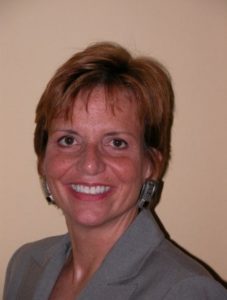 Mary Joyce received her Ph.D. from the University of Kentucky in 1981. Until her death in 2007, Mary was Gianneschi Professor of Nonprofit Marketing in the College of Business & Economics at California State University, Fullerton. Her research interests included social entrepreneurship, social marketing, and the effects of gender and aging on quality-of-life. In addition to her professorship and teaching duties, she served as the Vice President of External Affairs for the International Society for Quality-of-Life Studies (ISQOLS) and was honored by ISQOLS as a Distinguished Research Fellow. Mary also served on the boards of the National Policy and Advocacy Council on Homelessness (www.npach.org), the Tucker Wildlife Sanctuary and served on the Board of Directors of Goodwill Industries of Orange County and the Council on Aging of Orange County. Following her death, the major financial benefactors to the Fund in Mary’s name included Donald Rhatz, M. Joseph Sirgy, and Richard J. Estes.
Mary Joyce received her Ph.D. from the University of Kentucky in 1981. Until her death in 2007, Mary was Gianneschi Professor of Nonprofit Marketing in the College of Business & Economics at California State University, Fullerton. Her research interests included social entrepreneurship, social marketing, and the effects of gender and aging on quality-of-life. In addition to her professorship and teaching duties, she served as the Vice President of External Affairs for the International Society for Quality-of-Life Studies (ISQOLS) and was honored by ISQOLS as a Distinguished Research Fellow. Mary also served on the boards of the National Policy and Advocacy Council on Homelessness (www.npach.org), the Tucker Wildlife Sanctuary and served on the Board of Directors of Goodwill Industries of Orange County and the Council on Aging of Orange County. Following her death, the major financial benefactors to the Fund in Mary’s name included Donald Rhatz, M. Joseph Sirgy, and Richard J. Estes.
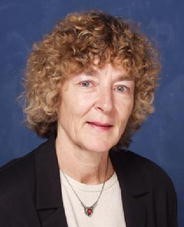 Valerie Møller is Professor Emeritus of Quality of Life Studies at Rhodes University, Grahamstown, South Africa. Before that she was director of the Institute of Social and Economic Research at Rhodes University (1998–2006) and headed the Quality of Life Research Unit at the University of KwaZulu-Natal, Durban, South Africa, in the 1990s.
Valerie Møller is Professor Emeritus of Quality of Life Studies at Rhodes University, Grahamstown, South Africa. Before that she was director of the Institute of Social and Economic Research at Rhodes University (1998–2006) and headed the Quality of Life Research Unit at the University of KwaZulu-Natal, Durban, South Africa, in the 1990s.
Dr, Møller received her Ph.D. in Sociology from the University of Zürich in 1978. Valerie first arrived in Africa in 1972 in a Volkswagen van that she and her husband had converted into a camper. She has lived and worked in southern Africa ever since.
Valerie’s research interests have covered a wide range of issues that impact on the quality of life of ordinary people. She has published numerous papers on her South African research and edited or co-edited volumes devoted to South African and global quality of life. Her report on South African quality of life over three decades received the International Society for Quality-of-Life Studies’ Social Indicators Research 2013 best paper award.
Valerie has served as the Vice-President of Publicity/Membership (2003-4) and President of ISQOLS (2007-8) and was honored by ISQOLS as a Distinguished QOL Researcher in 2016. In 2006, she hosted the 7th ISQOLS conference, the first to be held in Africa and in a developing country. As a QOL researcher based in Africa, Valerie would like to see greater support for the next generation of scholars with first-hand knowledge of human well-being in developing regions of the world.
Please consider making a tax-deductible contribution today!
https://isqols.dreamhosters.com/donation-to-isqols-foundation/
*New Published Book*: New Dimensions in Community Well-Being
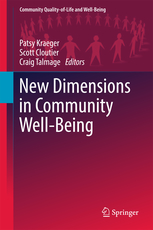 New Dimensions in Community Well-Being
New Dimensions in Community Well-Being
P. Kraeger, S. Cloutier, C. Talmage (Eds.)
Series: Community Quality-of-Life and Well-Being
▶ Addresses new innovations in quality of life and well-being from the
perspectives of the individual, society and community
▶ Reflects the broad interdisciplinary nature of quality of life
assessment and research
▶ Represents community and national level work with international
best practices
This volume addresses new innovations in quality of life and well-being from the
perspectives of the individual, society and community. It aggregates the perspectives,
research questions, methods and results that consider how quality of life is influenced in
our modern society. Chapters in this volume present theoretical and practical examples
on different aspects of quality of life and community well-being representing American,
European, Native American and African perspectives. This volume is of interest to scholars
in sociology, psychology, economy, philosophy, health research as well as practitioners
across the social sciences.
Click below to read more:
http://www.springer.com/us/book/9783319554075#aboutAuthors
This book is one of the first in our newly revised series by ISQOLS and Springer, Community Quality of Life and Well-Being (http://www.springer.com/
Please participate! Survey on Agenda for the Future of Social Indicators/Quality of Life Research
Survey on Agenda for the Future of Social Indicators/Quality of Life Research
By
Alex C. Michalos and Kenneth C. Land
In “Fifty years after the social indicators movement: Has the promise been fulfilled? An assessment and an agenda for the future”, Land and Michalos (2017) reviewed the history of the movement and made some recommendations for work in the future. Filomena Maggino circulated the paper for comments from several colleagues and friends, and papers from 20 of them were published in Social Indicators Research with “Replies to our Commentators” by Michalos and Land. The 20 comment papers came from Ferran Casas, Scott Huebner, Robert Cummins, Valerie Møller, Heinz-Herbert Noll, Christian Suter, Ming-Chang Tsai, Daniel Shek, Florence Wu, Wolfgang Glatzer, Enrico di Bella, Lucia Leporatti, Filomena Maggino, John Helliwell, Ruut Veenhoven, Jeroen Boelhouwer, Mariano Rojas, Chris Barrington-Leigh, Alice Escande and Linda Laura Sabbadini.
At the end of our replies, we listed 28 recommendations for future research drawn from all these scholars. As a final step in this exercise, we thought it would be helpful to circulate a short questionnaire among current scholars in the field to rate the recommendations and to elicit some that we may have missed. Hopefully, the ratings will provide researchers with some priority topics for future exploration.
The questionnaire will only take about 10 minutes of your time. Please rate each recommendation on a five-response scale from unimportant (1), below average importance (2), average importance (3), above average importance (4), very important (5). In case we missed something, finally write in specific others.
We appreciate and thank you for your help.
To access the survey, click here: https://www.surveymonkey.com/r/3HZ6H2Y
Quality of Life in Communities of Latin Countries edited in your series Community QOL and Well-being will be presented next Wednesday in Argentina.
Quality of Life in Communities of Latin Countries edited in your series Community QOL and Well-being will be presented next Wednesday in Argentina.
The presentation will be lead by Jon Hall, Chief of the team of the Human Development Report ( UN), New York.
This is the link http://www.palermo.edu/
Jon Hall will present the Human Development Report 2016 in the Master’s Degree in Social Sciences at the University of Palermo, in the framework of the 1st Conference of the Masters in Social Sciences and the III Conference of the Center for Research in Social Sciences (CICS-UP). She will also coordinate the panel presentation of the book Quality of Life in Communities of Latin Countries (2017-Springer), whose editor is Graciela Tonon, Director of the Master’s Degree in Social Sciences.
Date: Wednesday, June 7 4:00 p.m. Headquarters
: Mario Bravo 1259
http://www.palermo.edu/cienciassociales/2017/junio/jon_hall.html

